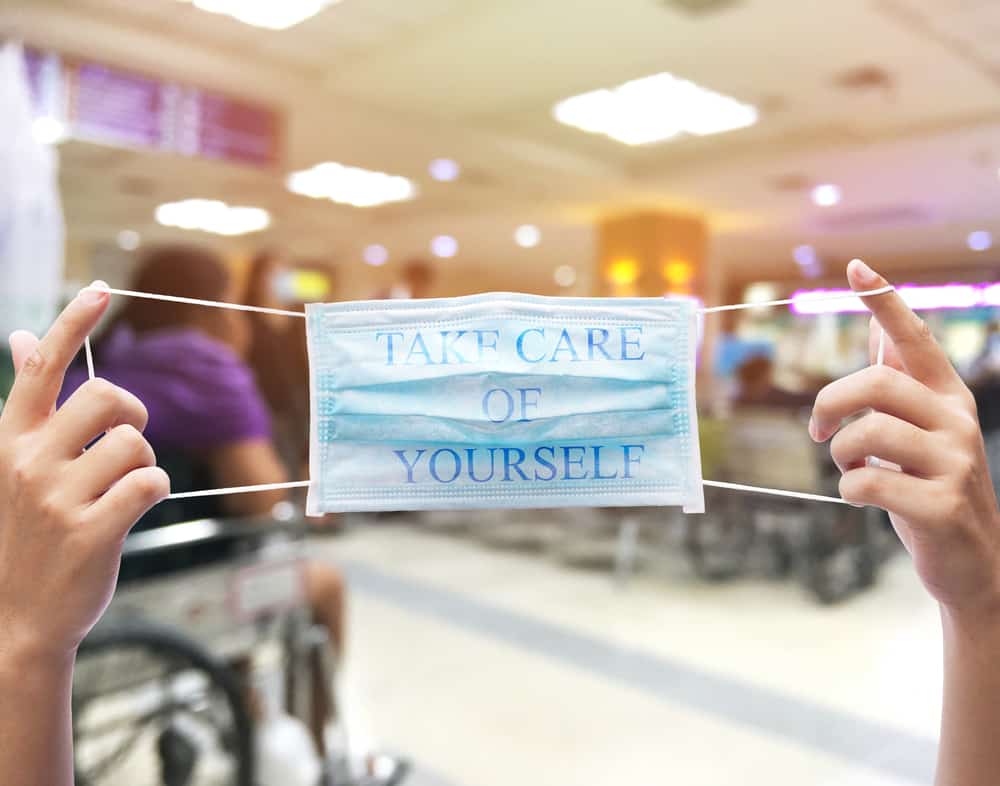Making Mental Health a Priority for Healthcare Professionals

May 1 marked the start of Mental Health Awareness Month. Since 1949, this month has worked to “increase awareness of the importance of mental health and wellness in Americans’ lives and to celebrate recovery from mental illness.” Media campaigns, local events, and digital spaces have highlighted not only mental health to millions of people but also strategies to help us maintain it.
This year, it feels more important than ever to take a step back and focus on mental wellbeing. That’s especially true for our heroes on the front line and behind the scene in healthcare. As we continue to face COVID-19, now is an ideal time to address mental health awareness for healthcare professionals.
What mental challenges do healthcare professionals face?
Healthcare professionals make a huge difference in people’s lives each day. From those in non-clinical positions such as coders and case managers to the clinical care team, their collaborative effort makes effective patient care possible.

Their impact in the fight against the pandemic is undeniable, but their work can easily lead to mental and emotional struggles. The physical and emotional labor takes quite a toll even on the most experienced professionals.
Struggles happen frequently enough when we aren’t living in the middle of a pandemic. But with more unpredictable scheduling, supply shortages, traumatic incidents, and patient loss, the wellbeing of our healthcare heroes is at stake.
5 common challenges
Here’s a look at 5 common mental health and wellness obstacles through the lens of healthcare professionals:
1. Chronic stress
Healthcare professionals are expected to absorb a staggering amount of stress. Aside from everyday worries over personal concerns, they face challenges that directly impact the quality of patient care.
Over time, these demands tend to increase, making it essential for these professionals to develop coping skills and to find ways to escape the feel of burnout. Left untreated, they may face other mental health issues.
But it’s not just physician burnout that is a cause for concern. Team members across the spectrum of the healthcare community are at risk of burnout, depression, and other conditions.
2. Sleep disorders
We all know the importance of sleep to our wellbeing. It’s crucial to our mental as well as physical health. To achieve restful sleep, people need a healthy rhythm. With ever-shifting schedules and occupational stress, currently maxed out for many due to the pandemic, getting even one good night of sleep may seem impossible.

Sleep disorders, often resulting from stress, are directly connected to mood and anxiety disorders along with a variety of other psychological and physical issues. The nature of healthcare work, unfortunately, can make consistently getting restful sleep a challenge.
3. Substance abuse
Healthcare professionals can face the risk of substance abuse just like anyone else. However, their stressful work environments and/or their ease of access to certain controlled substances can both contribute to the likelihood of such abuse.
It’s critical to their personal wellness as well as to long-term public health that those in healthcare struggling with substance abuse have avenues for addressing such issues.
4. Depression
Depression affects millions of people in the United States each year. However, people working in the healthcare profession are at higher risk to be affected.
These professionals may not recognize their risk of depression or the extent of the stress they face. They also may face stigma toward mental health within the healthcare community. Depression is dangerous enough on its own, but it may also manifest into an increased risk of suicide.
5. Secondary traumatic stress
Those who work in healthcare are currently battling COVID-19 from both the front line (clinical teams) and behind the scene (non-clinical teams). The secondary traumatic stress of exposure to other individuals’ traumatic experiences may further magnify the mental health challenges these professionals already face.
It can be difficult to recognize the signs of secondary stress, as they may manifest differently in each person. Healthcare workers should be aware of symptoms such as physical fatigue, loss of appetite, and guilt as the current public health emergency rages on.
Tips to encourage mental health awareness
We recently explored 5 quick self-care tips for healthcare teams during the coronavirus.

In addition to those tips, those teams should also watch for the following signs in themselves and in their colleagues:
- feeling easily frustrated
- depression, sadness, or apathy
- irritability
- feeling isolated or disconnected
- poor hygiene
- hopelessness
- using alcohol or drugs to self-medicate
Resources to help solve mental health challenges include:
- Employee assistance programs that offer mental and behavioral health services
- American Medical Association’s new mental health resources digital content, providing “specific recommendations on how physicians can take care of themselves, their staff and their patients”
- The National Suicide Prevention Lifeline
We’re here to empower you
At Harmony Healthcare, our goal is simple: to help healthcare professionals and organizations move past their limitations, empower them to create change, and make more success achievable.
Learn more about our open career opportunities here | Subscribe to our monthly newsletter here
Join us on Facebook here | Join us on LinkedIn here





